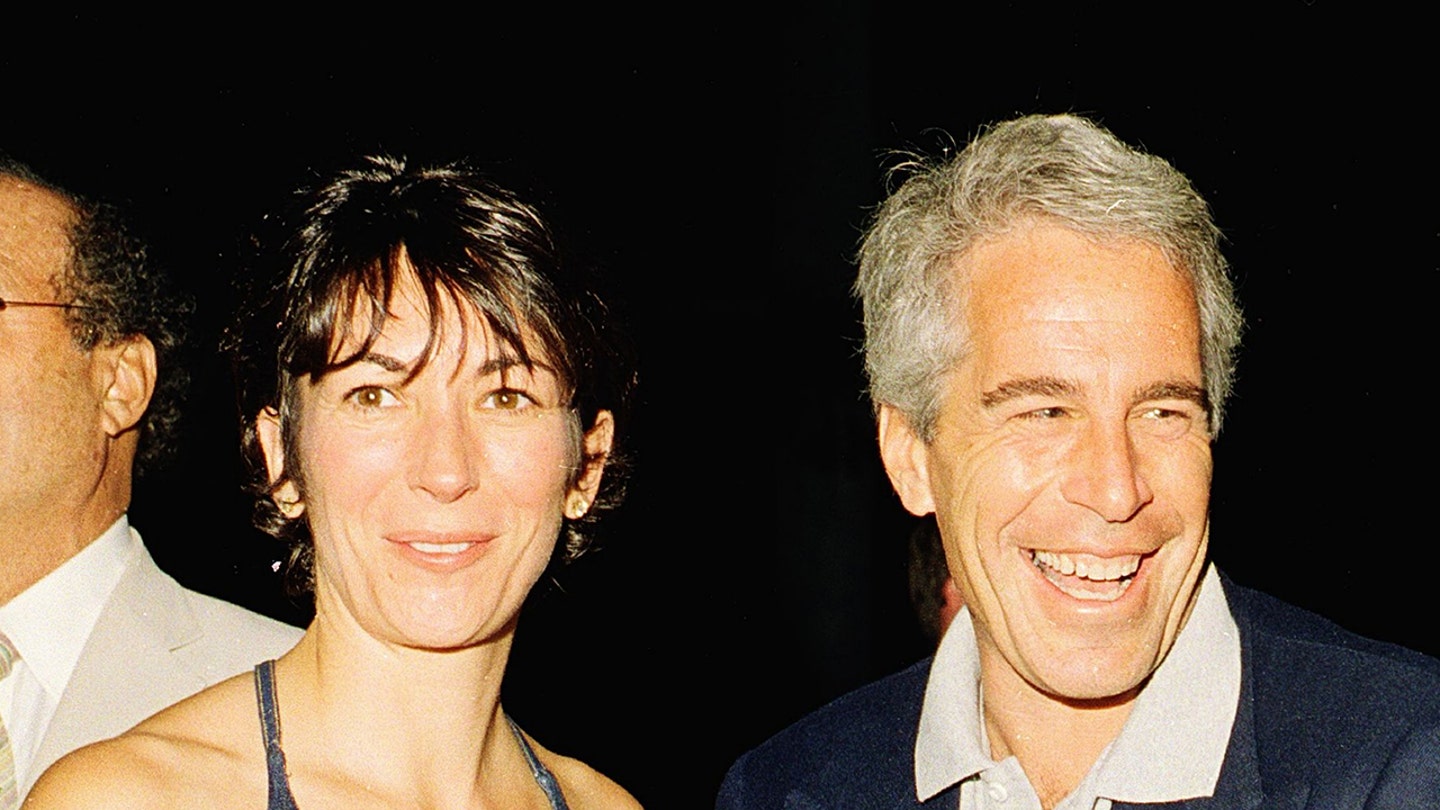
US soccer legend Abby Wambach dumps agency, calls for CEO's resignation over emails with Ghislaine Maxwell
Entities mentioned:
- Abby Wambach: Righteousness, Moral outrage, Self-respect
- Casey Wasserman: Self-preservation, Influence, Legacy
- Wasserman Agency: Damage control, Reputation, Professional pride
- Ghislaine Maxwell: Power, Control, Greed
Article Assessment:
Credibility Score: 75/100
Bias Rating: 55/100 (Center)
Sentiment Score: 30/100
Authoritarianism Risk: 20/100 (Strongly Democratic)
Bias Analysis:
The article presents multiple perspectives, including statements from both Wambach and Wasserman. It leans slightly towards Wambach's position but includes Wasserman's defense, maintaining a relatively balanced approach.
Key metric: Public Trust in Institutions
Let me tell you something, folks - this is a GAME-CHANGING PLAY in the world of sports representation! Abby Wambach, a true champion of the game, has just executed a MASSIVE DEFENSIVE MOVE by cutting ties with Wasserman Agency. This is the kind of fourth-quarter decision that separates the legends from the rookies! Casey Wasserman's emails have been INTERCEPTED like a poorly thrown pass, and now he's scrambling to recover. But Wambach isn't buying it - she's showing us what a championship mentality really looks like, folks! She's not just talking the talk, she's WALKING OFF THE FIELD and demanding a new coach. This is the kind of integrity play that changes the whole game! Wasserman is now in the hot seat, and let me tell you, that seat is HOTTER THAN A STADIUM HOTDOG IN JULY! He's facing a full-court press from athletes and artists alike, and his PR team is working overtime like it's sudden death in the playoffs. This story is far from over, sports fans - we're only in the first half of what could be a LEGACY-DEFINING MATCH for everyone involved!

Young Phillies fan forced to give up Harrison Bader home run ball to irate fan gets meet and greet, signed bat
Entities mentioned:
- Young Phillies fan: Enthusiasm, Recognition, Self-respect
- Harrison Bader: Professional pride, Recognition, Duty
- Irate woman fan: Indignation, Entitlement, Moral outrage
- Philadelphia Phillies: Professional pride, Public relations, Fan engagement
- Miami Marlins: Professional pride, Fan engagement, Sportsmanship
Article Assessment:
Credibility Score: 75/100
Bias Rating: 50/100 (Center)
Sentiment Score: 65/100
Authoritarianism Risk: 20/100 (Strongly Democratic)
Bias Analysis:
The article presents a balanced account of the events, including perspectives from multiple parties involved. It relies on factual reporting of the incident and subsequent actions, without apparent political or ideological slant.
Key metric: Public Trust in Institutions
As a social scientist, I analyze that this incident and its resolution highlight the complex dynamics of fan behavior, institutional response, and public relations in professional sports. The initial conflict between fans over a prized possession (the home run ball) demonstrates how sports can evoke strong emotional responses and territorial behavior. The subsequent intervention by both the Marlins and Phillies organizations to rectify the situation shows an awareness of public perception and a commitment to fan satisfaction, particularly concerning younger supporters. This proactive approach by sports institutions to address fan disputes and ensure positive experiences can contribute to maintaining and potentially improving public trust in these organizations. The viral nature of the incident on social media also underscores the importance of swift and appropriate responses by sports teams in the age of instant communication, as public opinion can be rapidly shaped by such events.

Trump renews pitch to get Roger Clemens into Hall of Fame: 'If it were me, I’d sue them'
Entities mentioned:
- Donald Trump: Influence, Recognition, Justice
- Roger Clemens: Legacy, Recognition, Self-respect
- Major League Baseball: Professional pride, Control, Integrity
- Baseball Hall of Fame: Legacy, Professional pride, Integrity
- Pete Rose: Recognition, Legacy, Redemption
- Rob Manfred: Professional pride, Control, Duty
Article Assessment:
Credibility Score: 70/100
Bias Rating: 55/100 (Center)
Sentiment Score: 45/100
Authoritarianism Risk: 35/100 (Generally Democratic)
Bias Analysis:
The article presents multiple viewpoints, including Trump's statements and background on Clemens' career and allegations. While it gives more space to Trump's perspective, it also includes contextual information that balances the narrative.
Key metric: Public Trust in Institutions
As a social scientist, I analyze that this article highlights the intersection of politics, sports, and public discourse. Trump's involvement in advocating for Clemens' Hall of Fame induction demonstrates the potential influence of political figures on traditionally non-political institutions. This situation may impact public trust in both political and sports institutions, as it raises questions about the integrity of selection processes and the role of external influences. The controversy surrounding Clemens' alleged steroid use and Trump's dismissal of these allegations without concrete evidence further complicates the public's perception of truth and fairness in both realms. This incident could lead to increased scrutiny of Hall of Fame selection criteria and potentially influence future decisions, affecting the perceived legitimacy of the institution.

10 key takeaways from DOJ’s release of Ghislaine Maxwell's Epstein interviews
Entities mentioned:
- Ghislaine Maxwell: Self-preservation, Loyalty, Influence
- Jeffrey Epstein: Power, Control, Greed
- Department of Justice: Justice, Duty, Transparency
- Donald Trump: Power, Influence, Self-preservation
- Bill Clinton: Influence, Legacy, Self-preservation
- Prince Andrew: Self-preservation, Pride, Influence
- Virginia Giuffre: Justice, Recognition, Moral outrage
Article Assessment:
Credibility Score: 65/100
Bias Rating: 55/100 (Center)
Sentiment Score: 30/100
Authoritarianism Risk: 35/100 (Generally Democratic)
Bias Analysis:
The article presents multiple perspectives and quotes directly from the interviews, showing an attempt at balance. However, the selection of 'top takeaways' may reflect some editorial bias in highlighting certain aspects over others.
Key metric: Public Trust in Institutions
As a social scientist, I analyze that this article's release of Ghislaine Maxwell's interviews significantly impacts public trust in institutions. The revelations about high-profile individuals and alleged cover-ups may erode confidence in political, legal, and social elite circles. Maxwell's claims, while potentially self-serving, shed light on a complex network of relationships and activities that intersect with powerful institutions. This could lead to increased public skepticism and demands for accountability, potentially affecting how citizens view and interact with various governmental and social institutions.

Rusted Qatari Plane Sitting On Blocks On White House Lawn
Entities mentioned:
- Leo: Curiosity, Enthusiasm, Self-respect
- The stars: Influence, Recognition, Obligation
Article Assessment:
Credibility Score: 30/100
Bias Rating: 50/100 (Center)
Sentiment Score: 60/100
Authoritarianism Risk: 20/100 (Strongly Democratic)
Bias Analysis:
The article maintains a neutral stance politically, focusing on humor rather than any partisan messaging. The satirical approach doesn't favor any particular ideological position, resulting in a centrist bias rating.
Key metric: Public Trust in Institutions
As a social scientist, I analyze that this satirical horoscope article, while humorous, could potentially impact public trust in institutions by mocking the perceived reliability of astrological predictions. The article playfully suggests that even cosmic forces can be forgetful or unreliable, which may lead readers to question other forms of guidance or expertise. However, the impact is likely minimal due to the clearly satirical nature of the content.

References to Trump’s impeachments are reinstalled at Smithsonian exhibit — with some slight but crucial changes
Entities mentioned:
- Smithsonian Institution: Professional pride, Duty, Wariness
- Donald Trump: Power, Self-preservation, Influence
- National Museum of American History: Duty, Professional pride, Obligation
- Bill Clinton: Legacy, Self-preservation
- Andrew Johnson: Legacy, Self-preservation
- Richard Nixon: Legacy, Self-preservation
Article Assessment:
Credibility Score: 75/100
Bias Rating: 45/100 (Center)
Sentiment Score: 45/100
Authoritarianism Risk: 30/100 (Generally Democratic)
Bias Analysis:
The article presents a balanced view of the situation, including both the initial removal and subsequent reinstallation of the exhibit. It quotes directly from the Smithsonian's statement, providing their perspective, while also detailing the changes made to the exhibit text.
Key metric: Public Trust in Institutions
As a social scientist, I analyze that this article highlights the delicate balance between historical accuracy, public perception, and political pressure in curating national exhibits. The Smithsonian's decision to reinstall and modify the Trump impeachment display reflects a struggle to maintain objectivity while navigating a politically charged atmosphere. The changes in language, such as adding 'alleged' and removing certain claims, suggest an attempt to present a more neutral stance. This incident underscores the challenges faced by public institutions in preserving historical record while remaining sensitive to current political climates. The public outcry and subsequent modifications demonstrate the high stakes involved in presenting recent, controversial history, and how it can impact public trust in cultural institutions.